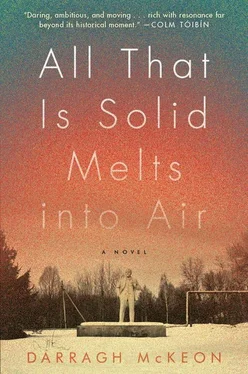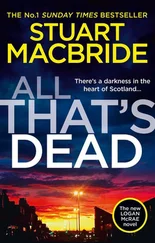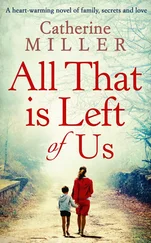“That was when you left?”
“No, even then I stayed for another few weeks. I thought I could be useful as the voice of reason, as someone who would defend the workers. Then I found out that the Party had organized protected farms near Mogilev. They were growing their own vegetables, scrutinizing the water supply. Everything was being overseen by experts, the very people who were needed on the ground, in the local villages. They had their own herds of cattle; each bullock had a number and was routinely tested. They had cows which they were certain gave out fresh milk. Meanwhile, in the stores around the exclusion zone, they were selling condensed and powdered milk from the Rogachev factory—the same stuff we were using in induction lectures as an example of a standard radiation source. That was when they had to get rid of me. I went back to Minsk and talked to Aleksei Filin, the writer. Told him everything I knew. He spoke out during a live TV interview, some literary programme. It was brave of him, he was arrested over it. He’s still in confinement, I haven’t been able to trace where they put him.”
“Why weren’t you arrested?”
“They threatened it. I was prepared to go. They were going to put me in an insane asylum. They whispered that if that didn’t suit I could find myself in a tragic accident. ‘Look around,’ I told them. ‘You’re too late.’ But irony is something the KGB can’t quite grasp.”
He looks out of the window, running a finger along the rim of his glass.
“Ultimately, they need surgeons, and I’m more useful working here than sitting in a padded cell.”
They’re silent for a few moments.
Each with their own resentments. Tanya is the first to speak.
“Andrei told me a joke, before he died, one that was going around the site.” Grigory realizes she’s looking for his assent to tell it, and he nods and she continues. “The Americans fly over a robot to help with the cleanup. So the supervising officer sends it to the roof of the reactor but, after five minutes, it breaks down. The Japanese have also donated one, so the officer sends that one up to replace the American robot but, after ten minutes, word comes back that it can’t withstand the conditions either. By now the officer is angry, he’s cursing their shoddy foreign technology. He shouts at his subordinate, ‘Send one of the Russian robots back up, they’re the only reliable machinery we have around here.’ His subordinate salutes and turns to go. As he’s leaving, the officer barks after him, ‘And tell Private Ivanov we’ve lost a lot of time, he has to stay up there for at least two hours before he gets his cigarette break.’”
Tanya smiles at the memory of Andrei telling it, his caustic humour, lips curling around his teeth, his words a combination of defiance and regret. She begins to weep.
Grigory waits until her tears lose their force, then takes her hand.
“I’ve just realized you’ve never told me your name.”
“Tanya.”
“I’m sorry, Tanya.”
“Thank you.”
She wipes away her tears with the base of her palm.
“Enough. This is a celebration, and I’m under orders.”
He sits up, his shoulders pushed back.
“Orders?”
“Of course. There’s endless speculation. They want me to find out something. You think a disaster like this is enough to keep us from gossiping? We embrace any distractions.”
He smiles. “What kind of speculation?”
“The only kind there is.”
“You want to know if there’s someone back home?”
“Well, there’s no one here—look at yourself, that’s obvious. I’m asking the why . You came here to help, I know this, we all appreciate it. But there’s always something else.”
He cradles his glass, eyes downturned.
“I don’t mean to pry.” A mother’s voice, soft with concern. “It’s just harmless chatter.”
THERE WAS THE VASE exploding against the wall. There were the remains of their kitchen chair, a pathetic, desultory thing that lay beaten beside his legs as he sat near the stove. Walking in, she already knew—of course she did; she had placed the note that morning. Not seeing anything—not noticing the wreckage of their home—other than his look, the rage in his eyes.
He thinks of their relationship as one composed mostly of afternoons. Work consuming both of them; he arriving at the hospital in the early evening, attending patients into midmorning; she leaving the apartment early, writing her articles before the offices filled up with talk and distraction, before editorial meetings devoured her time.
But there were afternoons. Late breakfasts on their days off. Waking to the midday sunlight, sheets contorted around them. Her smell at its fullest at this time. He would run his neck and face along her glistening body, harvesting the glorious odor of her sweat. He would lift her arm upwards, pressing her wrist against the headboard, and linger in the warm nest of her smell, first running the tip of his tongue along the shy stubble, then lapping up the fullness of her in long, wide strokes, repeating it all again below her waist.
Afternoons wandering through bookshops, her giving him a guided tour of the printed word. Then reading in the hours before supper as he lay with his head on the centre of her, her leg draped over his shoulder, claiming him.
The afternoons changed then, out of nowhere.
Afternoons when the weather was too harsh to leave the apartment and they would swap rooms, avoiding each other. He would move into the bedroom, she would move into the living room. He would shave at the sink and exit as she entered for her bath.
When she became pregnant, he thought it would be a new beginning, would cast away the gloom that had settled over them. Instead she sank further into herself.
Then came the afternoons when she covered herself in the protective wall of a book and he would snatch it from her hands and throw it against the wall, shouting, “Talk to me! Look at me! I’m standing here. Don’t treat me like a fucking ghost!” and she would rise from her chair and gather the book from the corner and select her page again and sit as though she had dozed off for a minute and lost her place.
Afternoons when they would walk through the streets in a rage and then dampen down in tearooms, where the presence of others would force them into civility, and he would tell a joke or a story from his childhood and a smile would skim across her face, a sunburst over a dreary, grey sea, and then pass again, serving only to taunt him with what they had once had.
The afternoon of irreparable damage. A lunch in the Yar—a rare thing, no alcohol, obviously, but a good steak with Fyodor Yuriyevich, then chief of surgery. Comrades dropping by to slap him on the arm. Horse talk, football talk, advice on which seminars to attend, which periodicals to submit work to. Questions about his paper on cardiomyopathy. A refrain from Fyodor on what it must be like to be young. Working, publishing, so much to come, family and all that entails. A new premier elected. A strong, vital man. Charismatic. A man who would renew the Union, usher it into the modern age. So much to look forward to, Grigory . Praise on his technique. Fyodor had scrubbed in on a recent case, a crash victim, not an easy procedure, not by any means.
“But you handled it well, Grigory. Your surgical team never exchanged a glance. Total calm, that’s all you need. Hands of ice. Never rush. Although you could bring your times down. What’s your best time on an endotracheal intubation?”
“Never as quick as you, sir.”
“Damn right. Beat me on that and I’ll transfer you to Primorye.”
Winking at Grigory, friendly but not without challenge, half meaning the threat, which obviously was the best compliment of all.
Читать дальше












